Obstructive Sleep Apnea Greensboro
Subtle, Effective Solutions for Restful Sleep
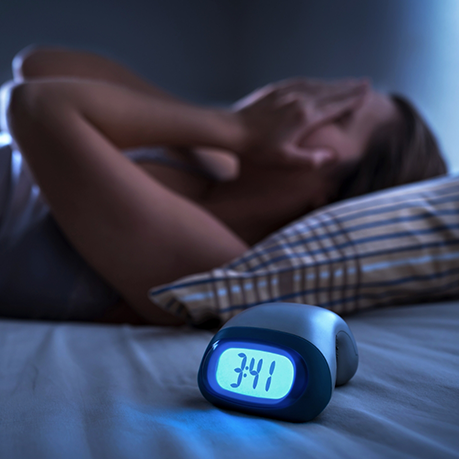
It’s no secret that each night, millions of people miss out on countless hours of sleep due to obstructive sleep apnea – even when treatment is possible! This is no way to live; your sleep is far too valuable and ensures that you’re able to function as the best version of yourself every day. That said, if you’re tired of feeling severely affected by your sleep apnea, allow our team here at SleepMed Solutions to help; we offer a wide range of treatment solutions for obstructive sleep apnea in Greensboro that are fully personalized based on your needs. Contact our office today to get started!
Why Choose SleepMed Solutions for Obstructive Sleep Apnea Treatment?
- Expert Staff with Decades of Experience
- Insurance-Friendly and Financing Available
- Personalized Treatment for All Patients
What Causes Obstructive Sleep Apnea?
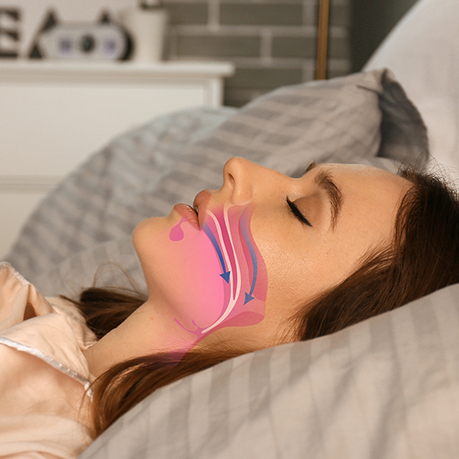
Obstructive sleep apnea (OSA) occurs when a patient’s airway is partially or fully blocked, usually due to the soft tissues and muscles of the throat becoming too relaxed to allow for proper breathing. These muscles support the back of the roof of the mouth too, which is known as the soft palate, as well as the tongue and the side walls of the throat. When they’re relaxed, the airway narrows as you breathe in, which can lower the level of oxygen in the blood and cause a buildup of carbon dioxide. Your brain senses this impaired breathing and briefly rouses you from sleep so that you can reopen your airway.
Possible Complications of Obstructive Sleep Apnea

Obstructive sleep apnea is considered a serious medical condition due to all of the health complications it’s been linked to, including things like:
- Daytime fatigue and sleepiness – A lack of restorative sleep can lead to severe daytime drowsiness, fatigue, and irritability, as well as impaired motor function and decreased performance at work or school.
- Cardiovascular problems – Sudden drops in blood oxygen levels can heighten blood pressure and place strain on the cardiovascular system, increasing the risk of heart disease.
- Complications with medicines and surgery – OSA is also a concern with certain medications and general anesthesia. Some medicines can relax the upper airway and make obstructive sleep apnea worse.
Types of Treatment for Obstructive Sleep Apnea

Treating obstructive sleep apnea depends greatly on the patient’s individual circumstances; however, the first step is always going to involve an in-person examination coupled with a sleep study, so that a proper diagnosis can be achieved. From there, treatment plans branch out and involve one or several different forms of therapy, including things like:
Lifestyle Changes

Sometimes it’s the little things that make a big difference when it comes to managing sleep apnea, and making certain lifestyle changes can end up having a significantly positive impact on your condition. Ensuring your bedroom is at the right temperature and free of specks of dust and allergens, as well as minimizing consumption of food and drink before bedtime, can prove useful. Additionally, losing weight and managing conditions like diabetes can also lead to positive outcomes that assist with treatment.
CPAP Treatment
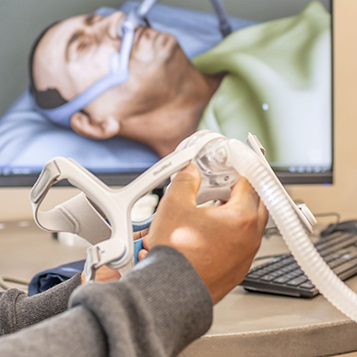
Many patients these days find success with CPAP treatment. It’s one of the most recognizable forms of sleep apnea treatment, and this familiar option can be used on its own or with oral appliance therapy to serve as an incredibly effective solution. It involves wearing a soft mask over the nose, or mouth and nose, which helps you maintain an open airway while you’re sleeping.
Learn More About CPAP Treatment
Oral Appliance Treatment
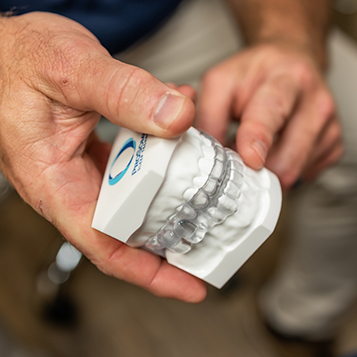
Oral appliance treatment involves the use of a custom-made mouthguard that is worn to bed. Its job is simple; it ensures the airway remains unobstructed during the night by supporting the lower jaw, keeping it in a stable, healthy position. These devices are highly customizable and comfortable, meaning you can quickly adjust to wearing one and immediately begin benefitting from it.
Learn More About Oral Appliance Treatment
Combined Therapy
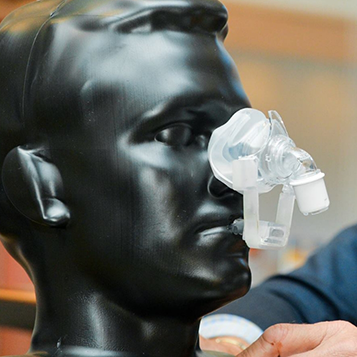
It’s very possible that CPAP treatment or oral appliance therapy might not be enough on their own to bring your sleep apnea fully under control. In these cases, we can utilize what’s referred to as combined therapy, which simply means you’ll wear an oral appliance in addition to a special CPAP mask, designed to fit only over the nose.
Surgery
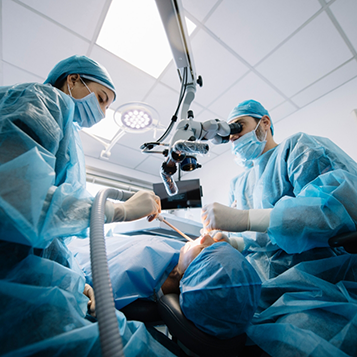
If oral surgery is necessary for managing your obstructive sleep apnea, we’ve got you covered. Our team is proud to work with the absolute best local obstructive sleep apnea experts in Greensboro and the surrounding area, so we’ll be sure to refer you to the right person for your case and ensure that you receive top-of-the-line care every step of the way.
